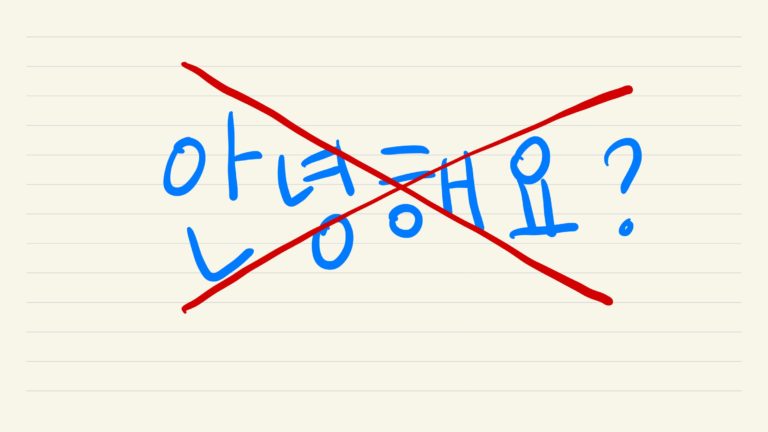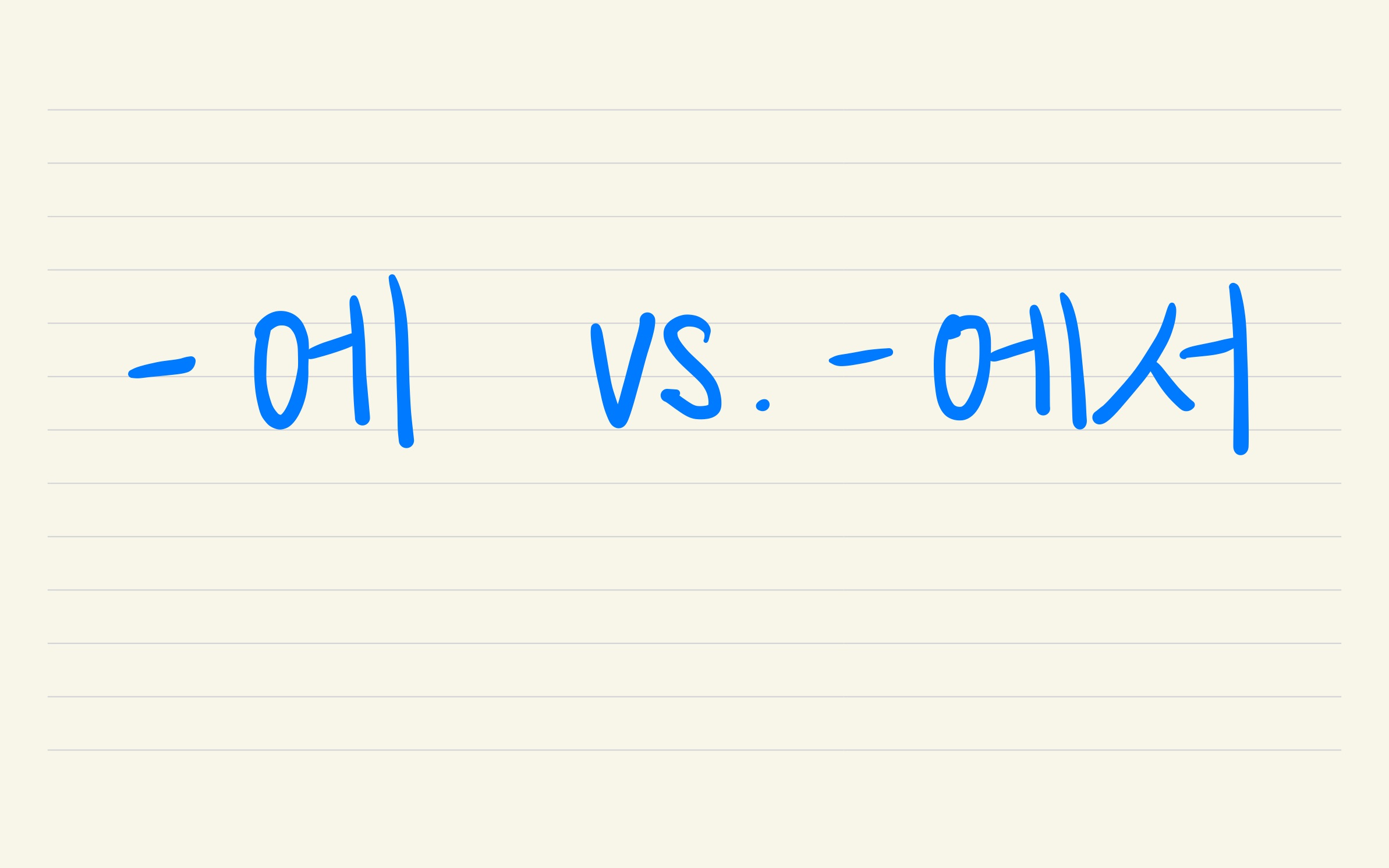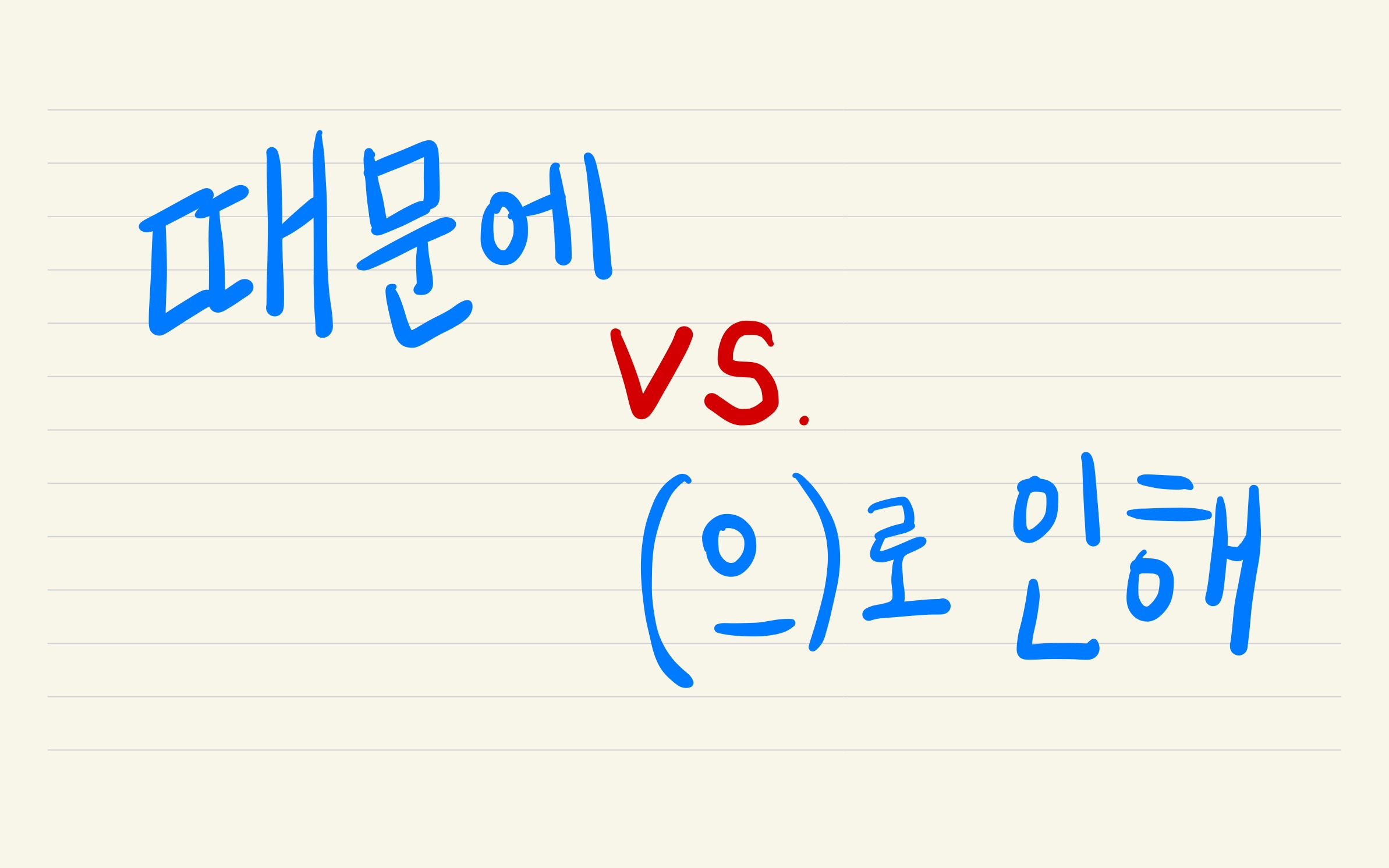These days, it seems like people from any country in the world know Korean greetings. When traveling abroad and meeting people, if I mention that I’m from Korea, they often respond with a strange but cute pronunciation of ‘안녕하세요?’ or ‘안녕?’. Interestingly, there are quite a few people who understand the difference between ‘안녕’ and ‘안녕하세요’.
In Korean greetings, ‘안녕?’ is informal speech used between close friends or in casual relationships, while ‘안녕하세요?’ is formal speech used in relationships that require politeness. This much is known to all Korean learners. However, sometimes students ask this question:
[Can’t we say ‘안녕해요?’?]
I think that’s an insightful question. Considering the grammar of polite endings, it would seem that ‘안녕해요?’ could serve as an appropriately friendly and polite greeting somewhere between ‘안녕?’ and ‘안녕하세요?’ in terms of politeness levels. However, to cut to the chase, you should never use ‘안녕해요?’. To exaggerate slightly, asking someone ‘안녕해요?’ could even start a fight! Now let me explain why.
Firstly let’s take a closer look at ‘안녕하세요?’. It is a standard Korean greeting which translates as ‘Are you at peace?’. Breaking down the sentence structure, ‘안녕’ signifies ‘peace’, ‘-하다’ is a verb, and ‘-세요’ is a polite ending form. So overall it forms a question-type greeting as in ‘Are you at peace?’, which we shorten to say as ‘안녕하세요?’.
On the other hand, ‘안녕해요?’ is not grammatically incorrect, but there are no Koreans who greet in this way. This means it cannot be seen in general Korean usage. (The fact that it’s not grammatically incorrect is the reason why questions like “Can’t we say 안녕해요?” arise.)
If we think about the reasons why we only use ‘안녕하세요?’ as a polite version of greeting, it would be as follows,
- Due to cultural customs: ‘안녕하세요?’ have become fixed over time. For example, when greeting someone we say ‘안녕하세요?’ instead of ‘잘 계세요?’ or ‘건강하세요?’, even though all of these could technically be translated as asking about someone’s well-being. So only ‘안녕하세요?’ has been widely accepted as a fixed expression, other forms of greetings have not naturally come into use.
- Due to differences in meaning (interpretation): Unlike ‘안녕하세요?’, ‘안녕해요?’ is a very direct question, which can be interpreted as directly asking about the other person’s condition or mood. It’s not a customary greeting but a question that really demands actual or specific answers. It can even sound like coercion. Therefore, it may be inappropriate to greet someone in everyday conversation in this way.
Therefore, ‘안녕하세요?’ is widely used as a basic greeting and expressions like ‘안녕해요?’ are rarely seen in everyday conversations.
In fact, the only structural difference between ‘안녕해요?’ and ‘안녕하세요?’ is the presence of the honorific pre-final ending ‘-시-‘. With the honorific pre-final ending ‘-시-‘ in ‘안녕하세요’, it functions as a polite greeting without any other room for misunderstanding. On the other hand, because ‘안녕해요’ does not have an honorific pre-final ending ‘-시-‘, it can appear as a general question form or declarative form. And the problem when ‘안녕해요?’ is interpreted as a general question form is that it may sound somewhat argumentative or confrontational. As previously explained, ‘안녕해요?’ is not merely a conventional greeting but gives the impression of genuinely inquiring about the other person’s state or mood. In addition, there are numerous other expressions to ask about someone’s well-being or state and mood (for example, 잘 계세요? 건강하세요? 잘 지냈어요? 괜찮아요? 요즘 어때요?, etc.).
Therefore, using ‘안녕해요?’ as a greeting can be seen as a disregard or break from convention, and it can sound like it’s demanding a real response. This is more likely to be interpreted in a different way than its original meaning of ‘Are you at peace?’. To put it bluntly, if some Korean were to ask me ‘안녕해요?’, I would interpret it in the following ways,
“안녕해요?(How dare you be well?)”
OR
“안녕해요?(I’ll listen to how well you’re doing these days. Not that I expect anything impressive…)”
I might be exaggerating a bit, but do you now understand why I said that a fight could occur if you use ‘안녕해요’ as a greeting? Therefore, if you’re just starting to learn the informal and formal speech in Korean, you must remember this. ‘안녕해요?’ is WRONG. You should never use it.




댓글